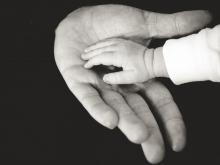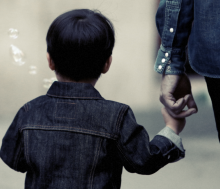
Family Law Attorney
Karie Boyd is the founding partner and CEO of the Boyd Law firm offices spread throughout the entire state of California. She is a certified family law specialist who consistently delivers case-winning results for her clients in cases taken to trial as well as positions her clients for attractive out of court settlements, when it comes to that. Karie Boyd received her B.A. from the University of San Diego then went and obtained her law degree from the California Western School of Law, after which she started her successful career as a San Diego family attorney. She is very passionate about her work and loves sharing her knowledge and passion of family and divorce law.
Dating after a divorce or separation is hard enough; when you have children, the situation becomes even more difficult. Divorce can have a negative and lasting impact on children to the point where they can no longer function properly. Often, children will lose interest in social activities and become emotionally sensitive after their parents went through a divorce.
Divorce brings many considerations – child support arrangements, asset division, and alimony can be contentious issues. When dealing with the emotional and financial considerations of divorce, estate planning is likely the last thing on your mind. But it’s an essential part of the healing process. Learn about the importance of estate planning and find out how to change your will after you divorce.
Revoking Your Will
If you are a stepparent and decide to adopt your spouse’s children, we want to congratulate you. Becoming your stepchildren’s legal guardian can give stepchildren a sense of security and confirm your commitment to your spouse and his or her family. Even if you have already accepted your stepchildren as your own in your heart, making it official can have many rewards and benefits.
Step 1: Filing Adoption Court Forms
The fact that divorce influences children in profound ways is common knowledge. What parents and educators may forget to consider, however, is how a divorce affects education.
After a divorce, child discipline can become an ongoing source of tension. Disagreements range from small differences, such as the consequences for failing to complete chores, to major differences in rules regarding homework, dating, and internet usage. In an ideal world, parents would agree on disciplinary structures. Unfortunately, many divorced parents struggle with differing views on child discipline and struggle to find compromises.
Challenges to Child Discipline
A divorce can bring many different emotions flooding to the surface: Anger, fear, and doubt may plague your thoughts. Depression and anxiety are common side effects of divorce. Separating from the partner you agreed to share your life with can be a catalyst for a depressive episode. This is a clinical event, so you shouldn’t dismiss it as a case of the blues.
You coped with the rigorous emotional demands of a divorce, and in all likelihood, do not want to think about your new identity as a single parent just yet. But the sooner you address your new role, the sooner you can adjust and learn how to thrive. Your children need you now more than ever; do not forget that they went through the divorce, too. Do yourself and your family an important favor. Embrace life as a single parent.
Do Not Let Anger Get the Best of You
In the U.S., every year there are thousands of people with children getting divorced or separated each year. Divorces and separations usually have the largest impact on the children. When the child or children involved have special needs it adds another level ambiguity with parents going through a divorce or legal separation.
Some divorces are harder than others. If you've recently gone through a tough divorce with an abusive ex, you may be concerned for the safety of your children. Immediately inform the authorities if you believe your children are being abused by your ex. Some cases allow you to file a restraining order on behalf of your child. Get the help you need now.
Domestic Violence and Children
Obtaining sole custody of your children can be an added challenge, as the courts tend to feel having both parents in the lives of children is in their best interest. Most states will always take into account what is best for the child. There are, however, some cases where sole custody is necessary, and is, in fact, in the best interest of the child. The court will ultimately make this decision for you.
The Difference Between Legal and Physical Custody




































